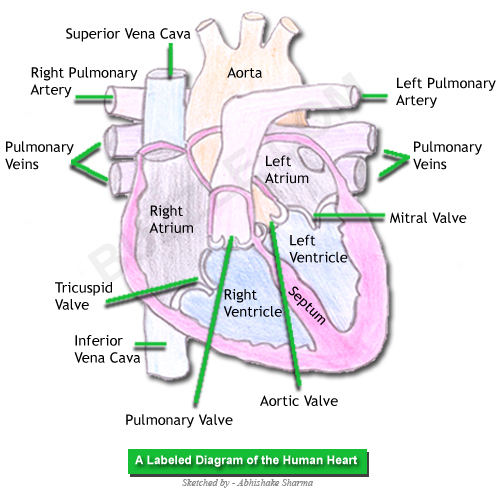The cardiovascular system
The cardiovascular system is a vital part of the functionality of our bodies. It is responsible for pumping blood all over our bodies, as well as bringing deoxygenated blood back to the heart, and sending it to the lungs to be reoxygenated before moving on to the rest of our bodies. The cardiovascular system also helps regulate body temperature, fight disease, transport hormones, and bring nutrients around the body.
the heart
the blood
The blood consists of 3 different types of cells. Red blood cells, white blood cells, and platelets. Red blood cells are responsible for carrying oxygen in the blood. Hemoglobin helps the red blood cells carry oxygen to and from the heart. White blood cells are also called leukocytes, and they protect our bodies against infection. Platelets help our blood clot when we have an abrasion or laceation that is bleeding.
veins, arteries, and capillaries
Veins bring deoxygenated blood from the body back to the heart, and arteries bring oxygen-rich blood from the heart to the rest of the body. Capillaries are the smallest of the blood vessels and go into surrounding areas and cycle nutrients and waste in and out of the body's tissues.

